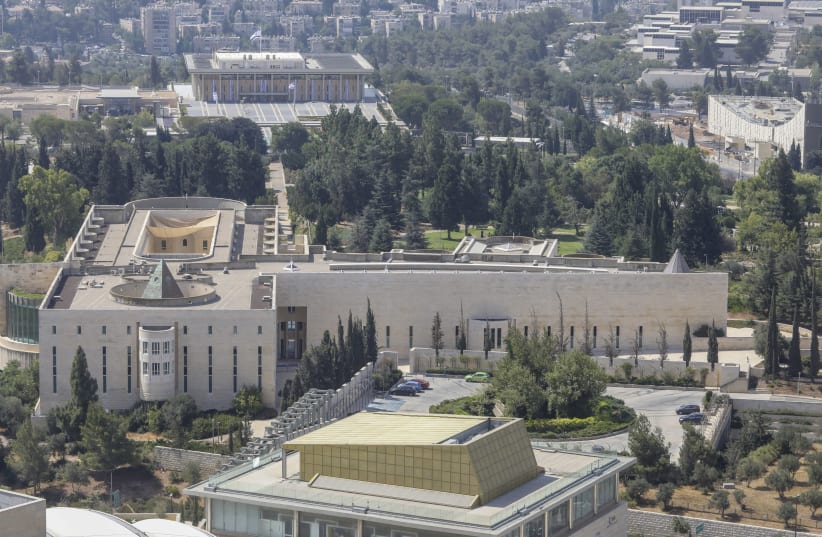Selections of candidates for four seats on the Supreme Court may be delayed several months, though as of Sunday night no such delay had been finalized by the Judicial Selection Committee members, and it was possible that the trial balloon was a negotiating tactic.
Already on November 23 the committee postponed its meeting which had been set to make the selections and on December 2 last week, Justice Minister Gideon Sa’ar appointed Tel Aviv District Court Judge Shaul Shohet to a six-month temporary seat on the court.
The other empty seat on the court could also be filled by a second temporary appointment, but this also is far from decided.
Neither Sa’ar, nor the Supreme Court’s three members on the panel nor other members were ready to take a clear stance on the issue with all the sides seeming to be trapped in a game of chicken.
Sa’ar clearly believes he has an advantage because Supreme Court President Esther Hayut is the party most harmed by the two empty seats on the court since April.
On the other hand, Sa’ar can be harmed politically if he appears stuck in the same political logjams which the previous government of former prime minister Benjamin Netanyahu was unable to overcome.
One of Sa’ar’s promises was to restore normalcy, functioning government and appointments, something which is difficult to achieve when the Supreme Court may not go shorthanded until close to next April, when two more justices will retire.
In addition, by agreeing to temporary justices, a practice which was abandoned around 15 years ago, Sa’ar is at least reducing the pressure on Hayut.
The existing two gaping holes on the court came from the retirements in April of Justices Hanan Melcer and Menachem Mazuz. Besides Sa’ar and Hayut, the committee also includes: Justice Yitzhak Amit, Justice Uzi Vogelman, Interior Minister Ayelet Shaked, Labor MK Efrat Riten, Religious Zionist Party MK Simcha Rotman and Israel Bar Association representatives Muhammad Naamana and Ilana Sakar.
On the one hand, by virtue of the make-up and ideologies on the committee, there has always been a standoff between the more conservative Sa’ar and the panel’s three more progressive Supreme Court justices.
But The Jerusalem Post understands that the two opposing sides had mostly reached a compromise by splitting the four pending appointments between progressive and conservative candidates.
In fact, the surprise delay appears to have come from a dispute between Sa’ar and the Israel Bar Association.
The bar association wants one of the four candidates to be a private-sector lawyer or a judge with a long prior private-sector career. The association has provided three names it would find acceptable.
It appears that Sa’ar has not accepted those names.
By October 2023, more than one-third of the 15 justices on the Supreme Court should have been changed, potentially altering the course of the court toward a more conservative direction in line with Sa’ar’s preference.
In mid-November it seemed that Sa’ar and Hayut had reached a deal in which the leading potential candidates were: Tel Aviv District Court Judge Khaled Kabub, Jerusalem District Court Judge Gila Canfy-Steinitz (wife of former minister and Likud MK Yuval Steinitz), Tel Aviv District Court Judge Ruth Ronen and an as yet undecided additional conservative candidate.
This last candidate seems to be the sticking point where the bar association wants a justice of its mindset, given that two justices who came from the private sector retired in recent years.
In April 2022, Neal Hendel and George Karra are due to retire.

